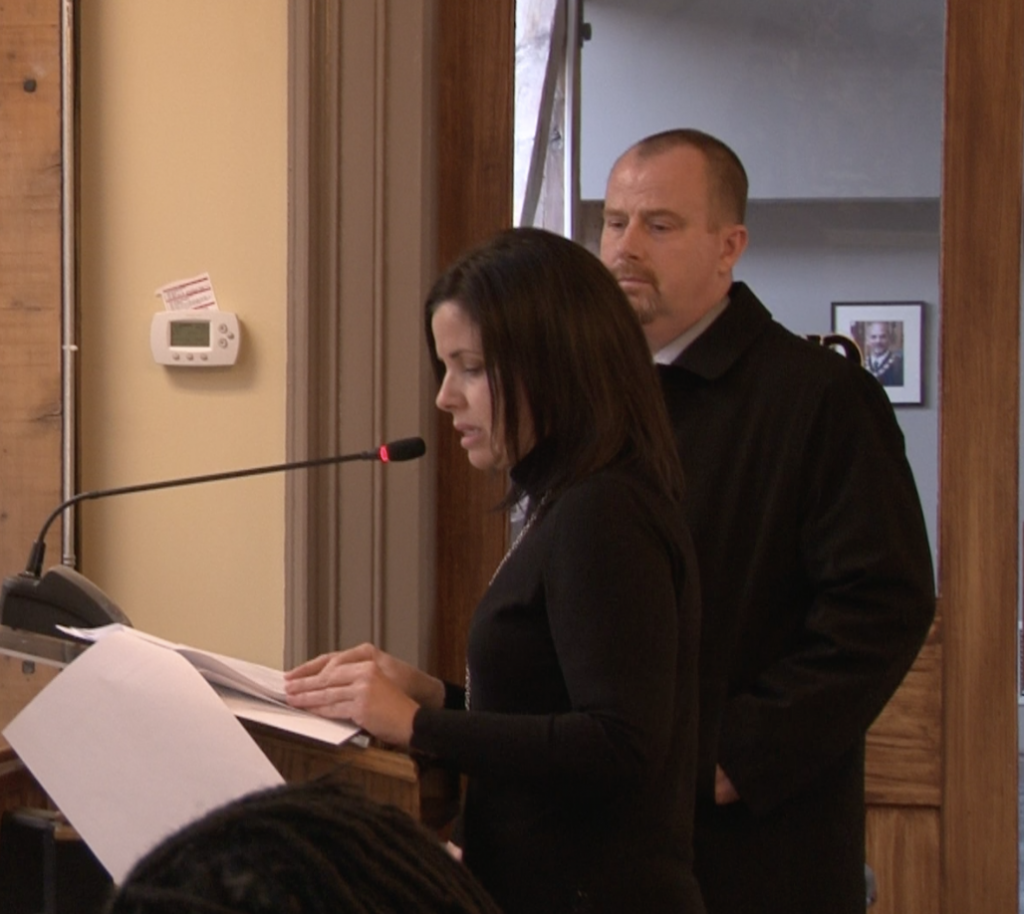Situation Table program seeks funding to hire co-ordinator

Carmela Ruberto, policy and program co-ordinator of Hastings County Community Services, and Belleville police Insp. Chris Barry speak to Belleville council Monday about the Situation Table program. Photo by Madeleine Villa, QNet News
BELLEVILLE – Representatives of a program called the Situation Table, geared to helping people in high-risk situations, are asking Belleville city council for funding to hire a co-ordinator.
Carmela Ruberto, policy and program co-ordinator of Hastings County’s community and human services department, told the councillors, “We really do need a co-ordinator to oversee this and keep moving forward.”
The program now has a volunteer chair who is committed and passionate, she said. But it desperately needs a full-time co-ordinator, she said.
Insp. Chris Barry of the Belleville police stood alongside Ruberto for the presentation. The police department is one of more than 30 agencies involved in the Situation Table. Other participating agencies include Addictions Mental Health and Quinte Health Care.
Barry told council that the program applied for grants to other levels of government, but has not been successful yet.
Coun. Mitch Panciuk suggested a solution.
“The city of Belleville has allocated a certain portion of (revenue coming in from the Shorelines Casino) towards social issues. And the Situation Table, in my mind, would meet some of the general criteria. I encourage you to make an application to that,” he said.
The councillors voted in favour of Panciuk’s suggestion.
The Situation Table plans interventions for individuals, groups or families at risk of harm, Barry said.
There are over 40 Situation Tables in Ontario and this one focuses on the Belleville, Quinte West and Centre Hastings area.
“They essentially come up with a plan to do an intervention within 24 to 48 hours, or as quickly as possible. And that usually takes the form of a door knock and an offer of services. So they custom-make a plan as to how they are going to help those individuals and connect with those services,” he explained.
In an interview with QNet News Thursday, Barry said that police officers are often the ones bringing these issues to the table, because they are beyond the scope of the police department to address on its own.
Ruberto said the program dealt with 37 high-risk cases last year, with the Belleville area contributing to the largest number.
The program helps the provincial government determine where the bigger issues are so it is able to direct funding to where it’ s needed most, said Barry.
Ruberto said the leading risks are addictions and mental health, isolation, poverty, lack of basic needs, domestic violence and crime victimization.
 Print This Post
Print This Post






